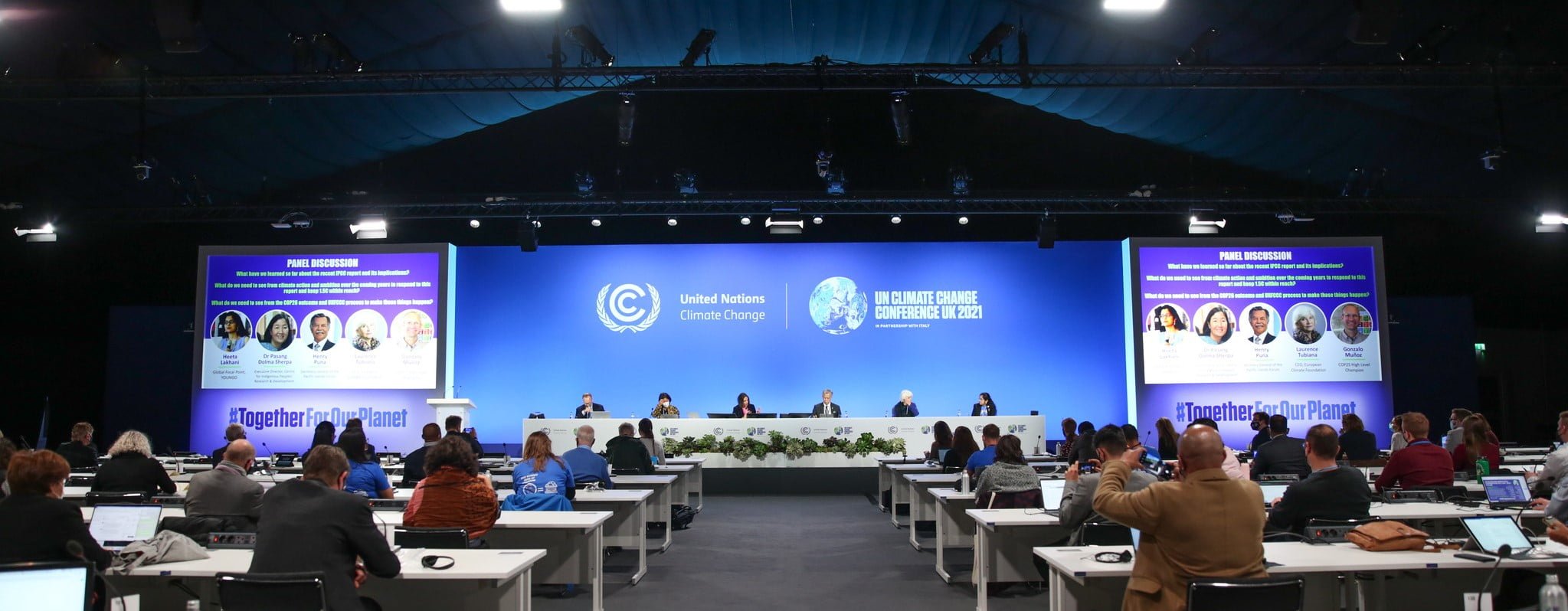
COP26
In 1994 Parties to the United Nations Framework Convention on Climate Change decided to meet annually to discuss matters related to climate change. This annual meeting became known through the Convention as the Conference of the Parties (COP). COP 26, was held in Glasgow, UK, from 31st October to 12th November 2021.
In this section you will find articles related to the history of COP, the development of international treaties, Parties’ ambitious commitments in relation to climate change, and focus pieces on what to expect in the upcoming COP.

Very little progress was made at COP26 in relation to climate change and the oceans and coastal communities.
Two initiatives were launched at COP26. One initiative was to conserve 30% of the world’s oceans by 2030 and the second, the world’s first Blue Bond announced by Fiji.
Have to wait to see if further action will be taken at the 2022 UN Oceans Conference in Lisbon. Read more

COP26 Landmark forests declaration now covers 90% of forests globally
Climate change and nature recognised as intertwined crises at COP26 but notably missed being featured in the ‘Glasgow Climate Pact’. Negotiations at COP26 failed to consider the whole food system. Read more

Adaptation finance progressed, but not enough to cover adaptation costs. Loss and damage was a major sticking point at the conference. Developed countries stood their ground meaning little action was taken on loss and damage. Read more

This article defines the term ‘Party’ that is stated in the UNFCCC, Kyoto Protocol and the Paris Agreement
There are three types of Parties to the UNFCCC, the Paris Agreement and the Kyoto Protocol; Annex I, Annex II and Non-Annex Parties
The Parties meet annually to discuss progress on climate change and further action needed at events known as Conferences of the Parties Read more

The Paris 2050 Targets are a set of initiatives to limit global warming to below 2 degree Celsius, with ambitious efforts to limit this to 1.5degree Celsius. Of 184 countries that pledged carbon reduction under the Paris Agreement, 75% of countries’ pledges were insufficient to meet the 2? target of . The fifth annual UNEP Report focuses on nations’ advanced strategies to adapt to climate change by researching Nature-Based Solutions, which aim to ensure a balance between society and sustaining biodiversity.
Read more

Week two of COP26 took place between 8th and 12th November 2021 and covered topics such as adaptation, transport, gender, science and innovation, and the built environment. Week two also saw the release of a cooperation agreement between US and China. Transparency was also found to be a cross-cutting subject that was important in many of the negotiation halls. Read more

COP26 started on Sunday 31 November 2021. The first week of the conference saw a two-day World Leaders Summit and respective days on finance, energy, youth empowerment and nature.
ClimaTalk has been tracking these topics and in this article presents the headline outcomes and thoughts from week one of COP26. We have also highlighted the developments and failures in the inclusion of Indigenous Peoples thus far at COP26.
Some of the biggest positive outputs include: the pledge to end deforestation by 2030, an agreement to end overseas public funding of fossil fuels by 2022, commitments to climate education, and finance for protecting Indigenous Peoples’ forest rights. Read more

The COP26 Presidency wanted to make the conference the most inclusive COP ever, however, reports have indicated that this has not been the case.
Vaccine rollout and travel restrictions have been two of the barriers to accessibility and inclusivity to COP26.
The price of accommodation has also been a barrier for young people wanting to attend the conference. Read more

Week two of COP26 will include negotiations and discussions on adaptation, transparency, loss and damage, science, nature, and the transport sector.
ClimaTalk will be hosting live sessions on these topics between Monday 8 November and Friday 12 November
As the second week of COP26 draws to a close, ClimaTalk will be discussing whether the Glasgow COP delivered on the expectations placed on the summit. Follow ClimaTalk to stay up to date on all the topics outlined in this article. Read more

COY16 took place in Glasgow on 30 to 31 October 2020 and saw delegates from 140 countries attend.
Robin Fontaine reflects on his experience at COY16 and states that the most significant output of COY16 was the Global Youth Statement, which demanded youth inclusion during policy negotiations and climate change governance. Read more
Banner photo courtesy of UNFCCC
